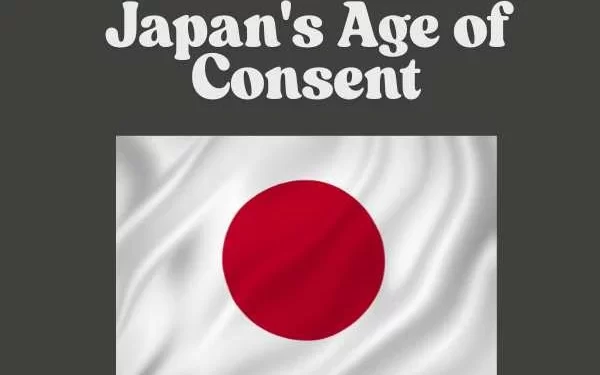Introduction
This has been a much debated topic in Japan and outside of Japan about its age of consent. Japan had one of the lowest national ages of consent list in the world for many years, something that surprises a lot of people. Recent amendments to the laws generally reflect more modern approaches toward the protection of minors.
In this blog, we are going to discuss about:
- Japan’s age of consent laws
- Changes in the law over time
- Laws in the prefecture in which you are located
- What Japan’s age of consent is compared to other places
- Controversies and Legal reforms
What Is the Consent Age in Japan?
Until recently, the age of consent in Japan was 13 years old, making it one of the lowest among developed nations. However, in response to public outrage over the exploitation especially of young girls, the Japanese government introduced a new age-16 consent law.
- Age of Consent (2023): 16 years old
- Prior Age of Consent: 13 years old
Understanding Japan’s Consent Laws
Japan’s age of consent law is defined in its Criminal Code. Here’s a breakdown of how it works:
1. National Law (Criminal Code)
- In 2023 it is 16 (new mimum age of consent).
- Sexual activity with anyone under the age of 16 is generally illegal, except there are certain close-in-age exemptions when both parties are minors.
- Laws regarding consent are designed to shield minors from exploitation.
2. Prefectural Laws (Obscenity and Juvenile Protection Laws)
- Some of Japan’s prefectures (states) have their own laws regarding relationships between minors and adults.
- Several prefectures have “obscenity laws” that restate a national law prohibiting adults from entering into relationships with minors who are above the national consent age.
3. Close-in-Age Exemptions
- The new law allows teenagers close in age (e.g., 16 and 17-year-olds) to engage in consensual relationships.
- Adults (18+) cannot have sexual relationships with anyone under 16.
Why Did Japan Raise Its Age of Consent?
For decades, Japan’s low age of consent drew criticism from international organizations and child protection groups. Although prefectural laws had afforded some protection, the age of consent, set nationally at 13, was considered archaic.
Major Reasons for the Change
- International Pressure: The age of consent in many developed countries ranges from 16 to 18 years, and Japan was criticized for being an outlier.
- Child Protection: The low consent age allowed for exploitation and predators found loopholes.
- Legal loophole: While prefectural laws were strict, inconsistencies in the law made court cases confusing.
- Spike in Exploitation: The government sought to strengthen legislation regarding child exploitation and throw traffickers behind bars.
How Does Japan’s Age of Consent Compare to Other Countries?
Japan’s new age of consent (16 years old) is now similar to many other countries.
| Country | Age of Consent |
| Japan (before 2023) | 13 years old |
| Japan (after 2023) | 16 years old |
| United States | 16-18 years old (varies by state) |
| United Kingdom | 16 years old |
| Canada | 16 years old |
| Germany | 14-16 years old (varies by circumstances) |
| France | 15 years old |
| South Korea | 16 years old |
Fact: Japan was one of the last developed countries to update its consent age from 13.
Controversies Surrounding Japan’s Age of Consent
Debates about Japan’s sexual consent laws persist, even following the 2023 reform.
1. Loopholes in Enforcement
Critics say there are still gray areas in regional laws. The national law is now 16, but some prefectures continue to make exceptions, creating legal uncertainty.
2. Cultural and Social Factors
It is also part of a unique cultural history in Japan regarding the industries of manga, anime, and entertainment depicting younger characters in relationships. Some say that shapes social norms: hence, age-of-consent debates tend to be charged.
3. Close-in-Age Exemptions
Others argue that the “Romeo and Juliet” clause (which allows minors to date one another) could be misused or misinterpreted in the law.
4. Legal Punishments for Offenders
The penalties for consent laws are:
- Domestic sexual relations with minors: up to 5 years in prison.
- Stronger laws against repeat offenders and adults in positions of authority (teachers, guardians, etc.).
Frequently Asked Questions About Japan’s Age of Consent
1. Is the age of consent in Japan really 16 now?
Yes. As of 2023, the new national age of consent is 16.
2. Were people allowed to date 13-year-olds before the law changed?
Not exactly. While 13 was the legal consent age, most prefectural laws prevented adults from dating minors.
3. What happens if someone violates the age of consent law?
✔ Strict penalties include prison time and criminal charges.
✔ Special laws apply to teachers, guardians, and adults in positions of power.4. Is the age of consent different for LGBTQ+ relationships in Japan?
No. The same age of consent laws apply to all relationships, regardless of gender.
5. Does Japan’s age of consent law apply to tourists and foreigners?
Yes. If you are in Japan, you must follow Japanese laws, even if you are a tourist.
Conclusion: Japan’s Age of Consent Law Is Now Stricter
Raising the age of consent, from 13 to 16, is a welcome step in the right direction toward protecting minors and preventing exploitation. The legal change ties Japan’s marijuana policy with the rest of the world, though regional differences remain and debate continues.
- Before the change: Japan’s consent laws have long been criticized as antiquated.
- Once amended: The new law seeks to give increased protection to children and seal gaps.
If you visit or live in Japan, learn local laws so that you do not break them. Japan takes age of consent violations very seriously, with strict penalties for offenders.
